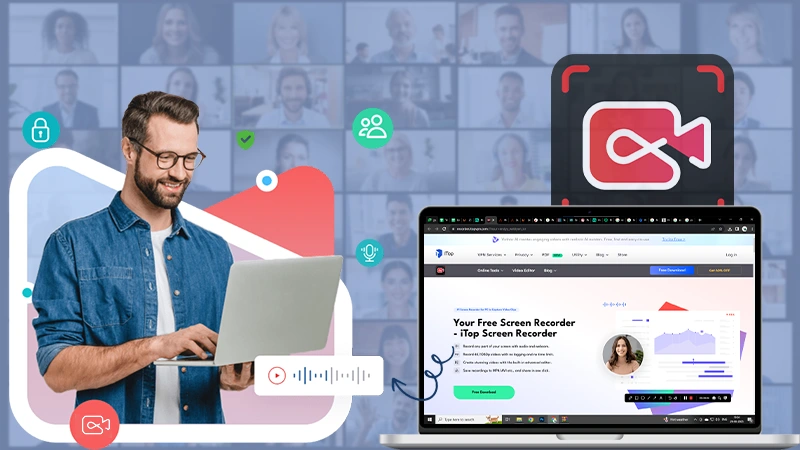What are the Types of API in MuleSoft
Introduction
APIs (Application Programming Interfaces) are critical to modern app development and integration. APIs enable different software systems and services to communicate with one another, allowing businesses to create new applications that leverage existing resources.
MuleSoft, a leading API management and integration software provider, provides a comprehensive platform for developing, testing, and managing APIs. MuleSoft’s API platform is intended to assist organizations in connecting disparate systems and data sources, automating business processes, and realizing their data’s value.
Table of Content
- Introduction
- MuleSoft API Varieties
- APIs and Their Importance in Modern Application Development and Integration
- MuleSoft’s All-In-One API Development, Testing, and Management Platform
- Design, Development, Testing, Deployment, and Management of APIs
- Conclusion
MuleSoft API Varieties
MuleSoft is a platform for developing APIs and integrations that support a wide range of APIs. MuleSoft allows you to create the following types of APIs:
- HTTP API: An HTTP API exposes endpoints over the HTTP protocol, allowing any client that can send HTTP requests to access them. MuleSoft provides a comprehensive set of components for developing HTTP APIs, including HTTP listener, HTTP request, HTTP response, and others.
- RAML API: RAML (RESTful API Modeling Language) is a human-readable and machine-readable language for describing RESTful APIs. MuleSoft offers a RAML editor and tools for creating RAML documentation and client SDKs.
- SOAP API (Simple Object Access Protocol): SOAP (Simple Object Access Protocol) is a protocol for exchanging structured data over the web using XML. MuleSoft has a SOAP connector that can be used to integrate with SOAP web services.
- REST (Representational State Transfer) API: REST (Representational State Transfer) is a set of architectural principles for developing web services. MuleSoft provides components for handling RESTful requests and responses and supports the development of RESTful APIs using RAML or other API specifications.
- JMS API: JMS (Java Message Service) is a messaging standard that allows applications to exchange messages. MuleSoft has a JMS connector that allows you to integrate with JMS brokers and messaging systems.
- OData API (Open Data Protocol): OData (Open Data Protocol) is a protocol for creating and consuming RESTful APIs for data access. MuleSoft offers an OData connector for connecting to OData services.
- JDBC API (Java Database Connectivity): JDBC (Java Database Connectivity) is a standard API for accessing relational databases. MuleSoft includes a JDBC connector for connecting to databases and running SQL statements.
- MuleSoft supports a variety of APIs, including HTTP, RAML, SOAP, RESTful, JMS, OData, and JDBC, making it a versatile and powerful platform for developing APIs and integrations.
For Candidate who wants to advance their MuleSoft Online Training Course is the best option.
APIs and Their Importance in Modern Application Development and Integration
- APIs, or Application Programming Interfaces, have become essential to modern application development and integration. An API is a set of rules and protocols that govern how various software systems interact. APIs enable developers to create new applications to leverage existing data and services, allowing organizations to build new products and services faster and more efficiently.
- APIs are critical in enabling organizations to connect disparate systems, automate business processes, and unlock the value of their data in today’s digital economy. APIs allow developers to create modular, reusable components that can be shared across multiple applications and platforms, increasing application development speed and efficiency.
- MuleSoft, a leading API management and integration software provider, provides a comprehensive platform for developing, testing, and managing APIs. MuleSoft’s API platform offers several tools and services to help with the entire API lifecycle, from design and development to testing, deployment, and management.
APIs have become an essential component of modern application development and integration, allowing organizations to create new products and services more quickly and efficiently while unlocking their data’s value. Organizations can use MuleSoft’s API platform to accelerate API development and management efforts and stay ahead of the competition in today’s fast-paced digital economy.
MuleSoft’s All-In-One API Development, Testing, and Management Platform
- MuleSoft provides a complete platform for developing, testing, and managing APIs. MuleSoft’s API platform is intended to assist organizations in connecting disparate systems and data sources, automating business processes, and realizing their data’s value.
- MuleSoft’s API platform includes various tools and services to support the entire API lifecycle, from design to testing, deployment, and management. API design and documentation tools, testing and mocking capabilities, API gateway and security, analytics, monitoring, and other features are included.
- The Anypoint Platform, which provides a unified, cloud-based platform for building and managing APIs and integrations, is a key component of MuleSoft’s API platform. A visual development environment, pre-built connectors for popular applications and services, and a variety of security and governance features are included in the Anypoint Platform to support API development and management.
- MuleSoft’s API platform also includes API testing and mocking tools, allowing developers to test APIs and applications before deploying them to production. This helps to ensure that APIs and applications work properly and reduces the risk of errors or downtime.
- MuleSoft’s API platform includes various features to support API management, such as analytics and monitoring tools, security and governance features, and integration with existing management systems, in addition to API design and development.
MuleSoft’s API platform offers a comprehensive set of tools and services to support the entire API lifecycle, allowing organizations to build, test, deploy, and manage APIs and integrations more efficiently and effectively.
Design, Development, Testing, Deployment, and Management of APIs
The API Lifecycle (Application Programming Interface) is divided into five stages:
- Design: The design phase is the first stage of the API Lifecycle, during which the API’s requirements are identified, and the API’s design is created. The API’s purpose, functionality, structure, and data models are established during this stage. The API design should be clear, consistent, and simple to use.
- Development: Once the design is complete, the development phase begins, during which the actual code to create the API is written. Developers should follow best practices during this stage to ensure the code is maintainable, scalable, and secure. Developers should also perform unit testing to identify and fix bugs.
- Testing: After the API has been developed, the testing phase begins, during which the API is tested to ensure that it meets its functional and non-functional requirements. Functional testing, performance testing, security testing, and other relevant tests should all be performed. The testing phase should identify and correct any flaws and ensure the API functions as expected.
- Deployment: Once testing is complete, the API is ready for production. The API is made available to the intended users during deployment. Packaging, versioning, and deploying to different environments are all examples of deployment steps. The deployment process should be automated, and it should be repeatable and scalable.
- Management begins after deployment, with the API being monitored, maintained, and updated as needed. Management entails monitoring API performance, tracking usage, identifying problems, and providing user support. The API should follow API management best practices, such as versioning, documentation, security, and change management.
Finally, adhering to the API Lifecycle provides a systematic approach to developing and managing APIs, which aids in ensuring the API’s quality, dependability, and usability.
Conclusion
MuleSoft offers a comprehensive platform for developing, integrating, and managing APIs and several tools and components to help with the API development process. MuleSoft allows developers to create APIs using a variety of specifications and protocols, including RAML, SOAP, RESTful, JMS, OData, and JDBC, making it a flexible and versatile platform.
MuleSoft has the advantage of providing a graphical user interface (GUI) for creating APIs, simplifying the development process, and making it more accessible to developers of varying skill levels. MuleSoft also provides a variety of connectors that enable seamless integration with various systems and applications, including Salesforce, SAP, AWS, and others.
MuleSoft provides a powerful and flexible platform for developing and managing APIs, enabling organizations to seamlessly connect their systems and applications, streamline their processes, and improve their digital capabilities.
Follow Us
Latest Post















